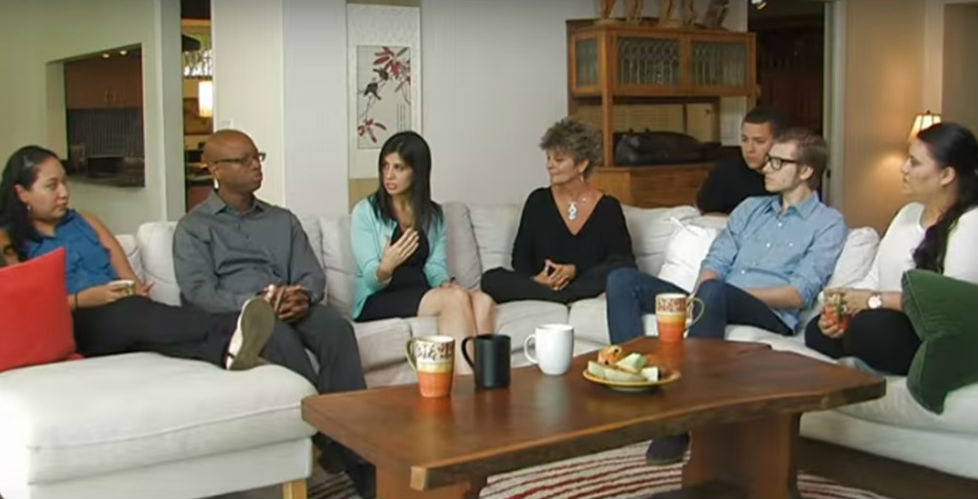
Cancer is disruptive at any point in one’s life, but especially so if the diagnosis comes in your 20s or 30s when you may be trying to create an independent life, work towards school or career goals, and find a partner. Many young people look forward to starting a family, while others spend time with friends and enjoy not having such heavy responsibilities. A diagnosis can be a serious disruption and leave you searching for ways to create the life you want.You hope that once treatment is over, you can go back to your “normal” life. Unfortunately, it is much more common to find that the end of treatment is actually a beginning as you navigate the physical, emotional and practical adjustments to life after cancer.
Physical Changes
The assault that your body withstands when undergoing treatment is intense. It takes time to heal from chemotherapy, surgeries, radiation, and stem cell transplants. You may feel “older” than your chronological years and be frustrated that your body is not cooperating or performing as it used to. It is normal for your relationship with your body to change during treatment.
Feelings about scars, changes in weight, the loss and regrowth of hair, and ongoing treatment-related side effects such as fatigue and neuropathy all have an impact on body image, self concept, and self-esteem. These changes can impact your identity and sense of self, which in turn can impact your relationships. Peers may not understand your post-treatment needs and you may feel out of place around people with whom you were once close. Worries about dating, sexuality, fertility, and intimacy are common, as are questions about how and when to disclose your cancer history.
Practical Concerns
A diagnosis can impact your career direction and goals as well as your financial security. You may have had to take a leave from school or work in order to go through treatment. Some people have support from family, but many young adults lack parental support and are not yet established in the job market to ensure good benefits and job stability. Young adults are more likely to have financial burden from student loans and credit card debt and, in some cases, additional responsibilities such as caring for young children and paying a mortgage increase the stress. You may decide after treatment that you want to make a career change into a more fulfilling field, but feel trapped in your current position due to financial and insurance-related concerns. Or you may find that when you returned to work, the side effects of treatment kept you from engaging in work in the same way.
Emotional Reactions
Understandably, you may be having strong emotional reactions to the way that cancer has disrupted your life. It is not uncommon for young adults to experience feelings of anger, sadness, grief and guilt. These feelings can be mixed with moments of gratitude and relief at having survived. Complicating the situation is that there is often an expectation that you “should” feel happy when treatment is completed. It is important to remember that there is no right or wrong way to feel. It is common to feel worse once treatment is over as you may finally have time to look at and process the experience you have just been through.
Many losses are not easily seen and can be the cause of great distress. Prior to being diagnosed, you, like many other young people, may never have questioned your health, your mortality and vulnerability, or the level of control that you have over your life. A cancer diagnosis often changes all of that and can leave you feeling unsure of how to move forward. One of the most difficult things to cope with is the worry about the future and fear of recurrence. You may worry that every pain or itch signals the return of your cancer and feel anxious about doctor’s appointments and scans.
Luckily, there are some things that you can do to help yourself adjust to life after treatment.
Validate and Share
Express your feelings about your cancer. The opportunity to share your experience and talk about how you feel with supportive friends, family, peers, or professionals cannot be underestimated. Give yourself permission to feel the way you feel without any judgment!
Cognitive-Behavioral Techniques
Cognitive-behavioral therapy states that our thoughts, or cognitions, are connected to our emotions and our behaviors. So, changing any one of these areas can impact the other two.
There are a few ways to change your thoughts. You can recognize that just because you think it, doesn’t mean it is true. You can evaluate how critical your thoughts are towards yourself and then reframe them so that you see the whole picture, both the positive and negative aspects of any situation.
Changing behaviors will also, by extension, change your thoughts and feelings. Engage in activities that you find pleasurable, and if nothing feels pleasurable, choose activities that will make you feel just a little bit better. Some people find deep breathing, progressive muscle relaxation, massage, or meditation helpful.
It may be hard to change your emotions, but you can practice tolerating them with compassion and a lack of judgment. All feelings come and go and although many feel uncomfortable, they are natural and will pass in time. Find ways to comfort yourself when your feelings are intense or overwhelming and pay attention to how long that feeling actually stays with you.
Mindfulness
Practicing mindfulness has been linked to improved mental health and quality of life. Attention and attitude are two keys to mindfulness. Attention refers to the practice of observing what is happening in your body, feelings, emotions and thoughts in the present moment. Attitude is the stance you take towards what you observed. Mindfulness encourages you to react to yourself with curiosity, openness, acceptance, and compassion.
You may have times when you are feeling very sad about your cancer experience. Accept that without trying to push it away. Be curious and investigate your experience. How does sadness feel in your body? What thoughts are passing through your mind as you feel this emotion? Try not to judge what you are thinking and feeling. It is very normal to have uncomfortable thoughts and feelings about your cancer experience.
Compassion
Finally, treat yourself with the empathy, care, and compassion that you deserve. Pay attention to your self-talk (that voice in your head that might be a bit too critical). Try to talk to yourself the way people who love you do. Check in with friends, family, a counselor, or a cancer support group for additional support and remember that you are not alone in this. Finishing treatment and reengaging in life as a young adult cancer survivor is HARD, but there is a large community waiting to help you through this.
Find helpful resources through The Leukemia & Lymphoma Society website. See a list of survivor resources. Read more about life after treatment, dealing with fertility, sexuality and intimacy. Download fact sheets about fertility, sexuality, long term effects and more. Watch a series of videos about Cancer Survivorship in Young Adults: Acute Lymphoblastic Leukemia.

Kimarie Knowles is a clinical social worker at Memorial Sloan Kettering Cancer Center with special training in cancer survivorship, bereavement issues, and group psychotherapy.
